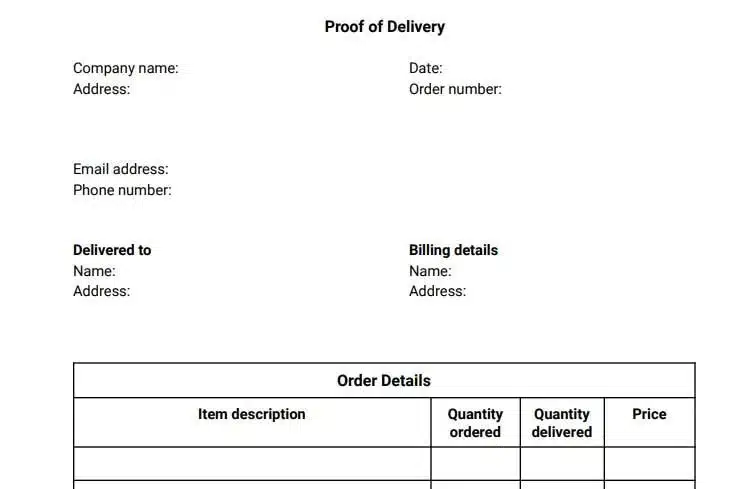“How much does it cost to ship from China to Kenya?” That’s one of the most frequently asked questions by businesses and individuals involved in China-Kenya trade. But the answer isn’t as straightforward as quoting a single number. International shipping costs are influenced by various dynamic factors, meaning there’s no fixed “standard rate.” Market prices can fluctuate at any time. It’s important to understand the cost breakdown, available shipping methods, and the key factors influencing pricing to get a clear picture of shipping expenses.
In this article, we’ll examine the main shipping options from China to Kenya, their respective costs, and potential challenges during transit, and share best practices to help ensure your goods arrive smoothly and efficiently.

Cost of Sea Freight from China to Kenya
Ocean freight is often the most cost-effective option between China and Kenya for transporting large volumes of non-urgent goods. However, several key factors influence the final shipping cost:
- The primary factors in calculating shipping rates are the type, volume, and weight of goods. Heavier or bulkier shipments typically cost more.
- Port of Origin and Destination: The distance and route from various Chinese ports—such as Shanghai, Shenzhen, Ningbo, or Qingdao—to Kenya’s Port of Mombasa can vary significantly, which impacts cost.
- Shipping Terms (Incoterms): Terms like FOB (Free on Board) or CIF (Cost, Insurance, and Freight) determine which party is responsible for specific costs during the shipping process.
- Market Supply and Demand: Freight rates can spike during peak shipping seasons, especially before major holidays or year-end deadlines.
- Fuel Prices: The Bunker Adjustment Factor (BAF), a surcharge based on fuel costs, fluctuates with changes in global oil prices.
Cost of Shipping 20ft and 40ft Containers from China to Kenya
For full container load (FCL) shipments, the most commonly used container sizes are 20-foot (20GP) and 40-foot (40GP or 40HC for high cube). To get an accurate, up-to-date shipping rate for a 20- or 40-foot container, it’s essential to contact a freight forwarder directly. You’ll need to provide detailed information about your shipment—including the type of goods, total weight and volume, the ports of origin and destination, and your desired shipping schedule—to receive a customized real-time quote.
Below are the costs for shipping 20ft and 40ft containers:
| POL (Port of China) | POL (Port of Kenya) | 20ft Container Cost | 40ft Container Cost |
|---|---|---|---|
| Shanghai | Mombasa | $2150-$3200 | $3500-$4900 |
| Shenzhen | Mombasa | $2200-$3300 | $3450-$4750 |
| Qingdao | Mombasa | $2250-$3450 | $3650-$4950 |
| Ningbo | Mombasa | $2300-$3500 | $3250-$4850 |
| Guangzhou | Mombasa | $2250-$3250 | $3450-$5000 |
| Tianjin | Mombasa | $2300-$3300 | $3500-$4900 |
| Dalian | Mombasa | $2100-$3500 | $3450-$4850 |
Air Freight Costs from China to Kenya
Air freight is the fastest way to ship goods from China to Kenya, making it ideal for high-value, time-sensitive, or smaller shipments. However, speed comes at a price.
- Higher Cost: Air freight is significantly more expensive than ocean freight—often several times higher, depending on the shipment.
- How It’s Priced: Costs are based on the “chargeable weight,” greater than the actual or volumetric weight. Volumetric weight is typically calculated as:(Length cm × Width cm × Height cm) ÷ 6000
Note: The divisor may vary slightly depending on the airline.
- Key Pricing Factors: Several elements influence air freight costs, including the shipment’s weight and volume, speed requirements (standard vs. express service), chosen airline, fuel surcharges, security fees, and airport handling charges.
Below are the costs of air freight from China to Kenya:
| Departure Airport (China) | Arrival Airport (Kenya) | Cost Range (USD/kg) |
| Shanghai Pudong | Nairobi | $5.0 – $8.0 |
| Guangzhou Baiyun | Nairobi | $5.0 – $7.8 |
| Beijing Capital | Nairobi | $5.5 – $7.8 |
| Shanghai Pudong | Mombasa | $5.5 – $8.0 |
| Guangzhou Baiyun | Mombasa | $5.0 – $7.5 |
| Beijing Capital | Mombasa | $5.5 – $7.8 |
If you are interested in the cost of shipping to other countries? Please read below:
How Much Does it Cost to Ship from Cambodia to USA?
How Much Does it Cost to Ship from China to Bulgaria?
How Much Does it Cost to Ship from China to Austria?
How Much Does it Cost to Ship from China to Italy?
How Much Does it Cost to Ship from China to the Netherlands?
How Much Does it Cost to Ship from China to the UK?
Main Shipping Methods from China to Kenya
When shipping goods from China to Kenya, there are three main transportation options to consider:
Sea Freight
- Full Container Load (FCL):
- You book an entire container for your goods. This option offers better security and efficiency, making it ideal for large-volume shipments.
- Less than Container Load (LCL):
- Your goods share a container with shipments from other customers. It’s cost-effective for smaller quantities, with pricing based on volume or weight.
Pros:
- Cost-effective, especially for bulky or heavy goods
- Ideal for large shipments
Cons:
- Slower transit time (typically 25–40 days)
Air Freight
- Goods are transported via cargo planes suitable for urgent or high-value shipments.
Pros:
- Much faster delivery (usually 3–10 days)
- Reliable and efficient for time-sensitive cargo
Cons:
- Significantly more expensive than sea freight
- Restrictions on size, weight, and certain types of cargo
Express Courier Services
- Providers like DHL, FedEx, UPS, and others offer international door-to-door delivery.
Pros:
- Fastest option—delivery can take as little as a few days
- Door-to-door convenience with simplified customs clearance (especially for low-value parcels)
Cons:
- The most expensive shipping method
- Best suited for small parcels, samples, or documents
Key Challenges When Shipping from China to Kenya
While trade between China and Kenya is thriving, the shipping process still comes with several potential challenges that businesses should be prepared for:
Port Congestion:
Kenya’s primary port, Mombasa, can experience congestion, causing delays in unloading and clearing shipments. This can slow down the overall delivery timeline.
Complex Customs Procedures:
Navigating Kenya’s customs regulations can be complicated. Strict documentation requirements mean that even minor errors can lead to delays, fines, or additional inspections.
Shipping Delays:
Besides port congestion, factors like bad weather, transit route disruptions, and vessel schedule changes can lead to unexpected delays.
Documentation Issues:
Inaccuracies or inconsistencies in essential documents—such as the bill of lading, commercial invoice, or packing list—are common sources of customs clearance problems.
Inland Transportation Challenges:
Once goods arrive at the port, moving them inland can be difficult due to underdeveloped transportation infrastructure in some parts of Kenya.
Freight Rate Fluctuations:
Global market conditions can cause unpredictable changes in shipping costs and fuel surcharges, making it difficult to plan and budget accurately.
Communication Barriers:
Time zone differences, language barriers, and cultural misunderstandings can hinder smooth coordination between Chinese suppliers, freight forwarders, and Kenyan importers.
Best Practices for Ensuring Smooth Shipping from China to Kenya
To ensure a smooth, efficient, and cost-effective shipping process from China to Kenya, consider the following best practices:
- Plan and Book Early:
- Early planning and securing bookings in advance, especially during peak seasons, can help lock in better rates and guarantee space on vessels or flights.
- Work with a Reliable Freight Forwarder:
- Partner with an experienced freight forwarder with a strong network in China and Kenya. They should be well-versed in Kenyan import procedures and capable of efficiently handling local coordination and customs clearance.
- Ensure Accurate and Complete Documentation:
- Double-check all shipping and customs documents—including the commercial invoice, packing list, bill of lading or air waybill, and certificate of origin. Make sure all information is consistent, accurate, and submitted to your freight forwarder ahead of time.
- Understand Kenyan Customs Requirements:
- Familiarize yourself with Kenya’s import regulations for your specific goods, including applicable tariffs and required certifications (such as PVOC compliance). Your freight forwarder can assist with up-to-date regulatory information.
- Invest in Cargo Insurance:
- Protect your shipment against potential loss or damage during transit by purchasing appropriate cargo insurance.
- Maintain Clear Communication:
- Stay in regular contact with your suppliers and freight forwarders to remain updated on your shipment’s status and respond quickly to any issues.
- Use Shipment Tracking:
- Take advantage of tracking tools your carrier or freight forwarder provides to monitor your goods in real time throughout the shipping journey.
- Build in Buffer Time:
- Anticipate possible delays—due to customs, weather, or logistics issues—and factor extra time into your delivery schedule to avoid disruptions.




